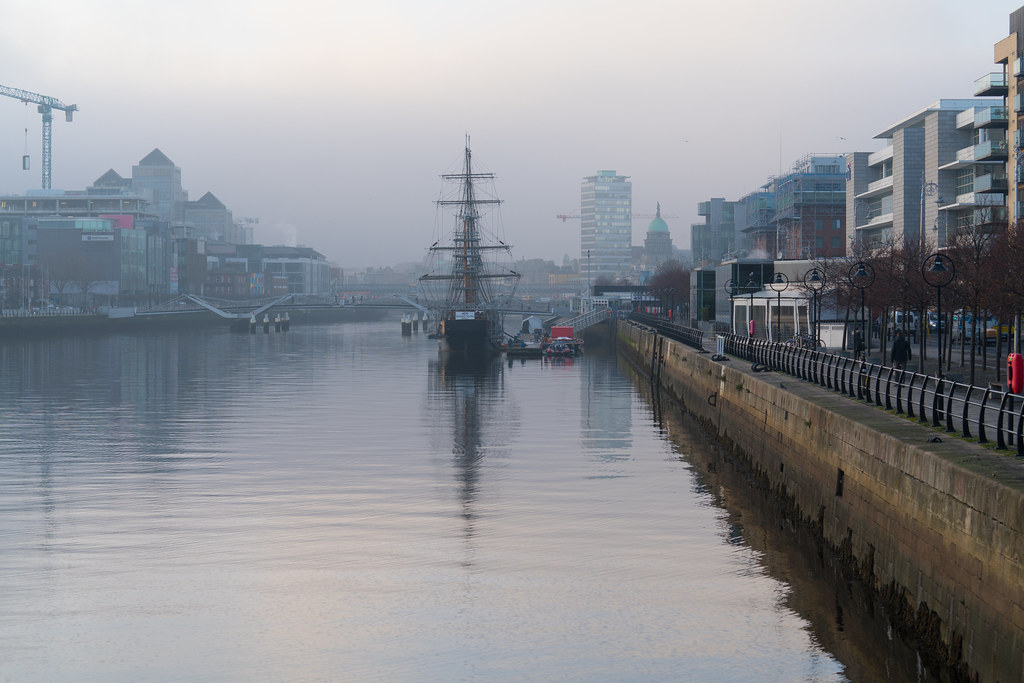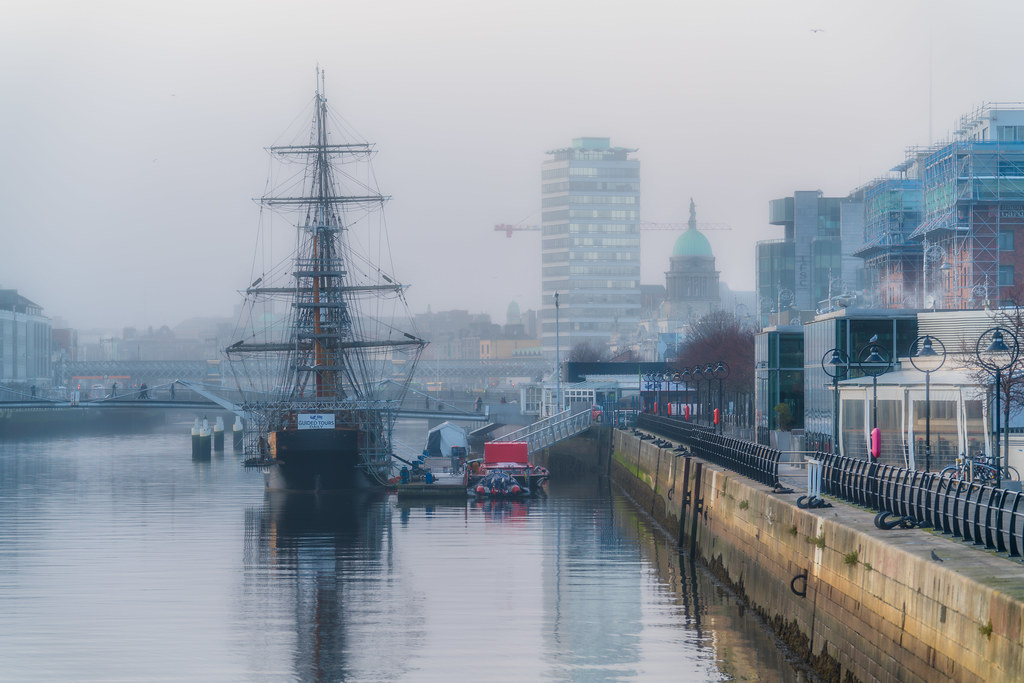THE JEANIE JOHNSTON
The Jeanie Johnston is a replica of a three masted barque that was originally built in Quebec, Canada, in 1847 by the Scottish-born shipbuilder John Munn. The replica Jeanie Johnston performs a number of functions: an ocean-going sail training vessel at sea and in port converts into a living history museum on 19th century emigration and, in the evenings, is used as a corporate event venue.
The original Jeanie Johnston was bought by Tralee, Co. Kerry-based merchants John Donovan & Sons, as a cargo vessel and traded successfully between Tralee and North America for a number of years. The trading pattern was to bring emigrants from Ireland to North America, and then to bring timber back to Europe.
She made her maiden emigrant voyage from Blennerville, Co. Kerry to Quebec on 24 April 1848, with 193 emigrants on board, as the effects of the Famine ravaged Ireland. Between 1848 and 1855, the Jeanie Johnston made 16 voyages to North America, sailing to Quebec, Baltimore, and New York. On average, the length of the transatlantic journey was 47 days. The most passengers she ever carried was 254, from Tralee to Quebec on 17 April 1852. To put this number in perspective, the replica ship is only licensed to carry 40 people including crew.
Despite the number of passengers, and the long voyage, no crew or passenger lives were ever lost on board the Jeanie Johnston. This is generally attributed to the captain, James Attridge, not overloading the ship, and the presence of a qualified doctor, Richard Blennerhassett, on board for the passengers. On the maiden voyage from Tralee to Quebec in April 1848, a boy was born aboard the ship. To mark the unusual surroundings of his birth, the parents, Daniel and Margaret Reilly, named the baby Nicholas (after the co-owner of the vessel Nicholas Donovan) Johnston (after the ship) so Nicholas Johnston Reilly was added to the passenger list.
In 1855, the ship was sold to William Johnson of North Shields in England. In 1858, en route to Quebec from Hull with a cargo of timber, she became waterlogged. The crew climbed into the rigging, and after nine days clinging to their slowly sinking ship, they were rescued by a Dutch ship, the Sophie Elizabeth. Even in her loss, she maintained her perfect safety record.
The original Jeanie Johnston was bought by Tralee, Co. Kerry-based merchants John Donovan & Sons, as a cargo vessel and traded successfully between Tralee and North America for a number of years. The trading pattern was to bring emigrants from Ireland to North America, and then to bring timber back to Europe.
She made her maiden emigrant voyage from Blennerville, Co. Kerry to Quebec on 24 April 1848, with 193 emigrants on board, as the effects of the Famine ravaged Ireland. Between 1848 and 1855, the Jeanie Johnston made 16 voyages to North America, sailing to Quebec, Baltimore, and New York. On average, the length of the transatlantic journey was 47 days. The most passengers she ever carried was 254, from Tralee to Quebec on 17 April 1852. To put this number in perspective, the replica ship is only licensed to carry 40 people including crew.
Despite the number of passengers, and the long voyage, no crew or passenger lives were ever lost on board the Jeanie Johnston. This is generally attributed to the captain, James Attridge, not overloading the ship, and the presence of a qualified doctor, Richard Blennerhassett, on board for the passengers. On the maiden voyage from Tralee to Quebec in April 1848, a boy was born aboard the ship. To mark the unusual surroundings of his birth, the parents, Daniel and Margaret Reilly, named the baby Nicholas (after the co-owner of the vessel Nicholas Donovan) Johnston (after the ship) so Nicholas Johnston Reilly was added to the passenger list.
In 1855, the ship was sold to William Johnson of North Shields in England. In 1858, en route to Quebec from Hull with a cargo of timber, she became waterlogged. The crew climbed into the rigging, and after nine days clinging to their slowly sinking ship, they were rescued by a Dutch ship, the Sophie Elizabeth. Even in her loss, she maintained her perfect safety record.

SHIP IN THE MIST 002

SHIP IN THE MIST 001
You will find links to buy products from Amazon, Google and other partners. If you click on these links, you’ll find that the URL includes a small extra piece of text which identifies that the click came from my websites. This text is an affiliate code, and it means that I get a small percentage of the money you spend if you choose to buy that product, or, in some cases, other products from the site soon after. These affiliate links help pay the costs of producing my websites and ensure that the content is free to you.
COPYRIGHT INFORMATION BELOW APPLIES ONLY TO PHOTOGRAPHS

This work by William Murphy aka Infomatique is licensed under a Creative Commons Attribution-NonCommercial-ShareAlike 4.0 International License.
Permissions beyond the scope of this license may be available at https://excellentstreetimages.com/in-the-year-twentytwenty/copyright/.
